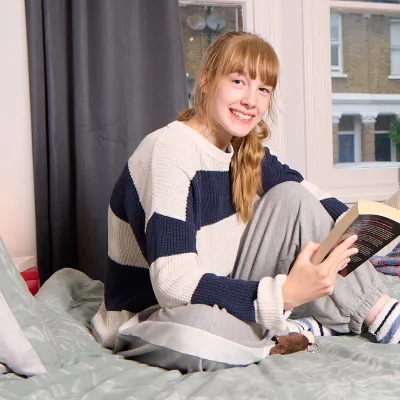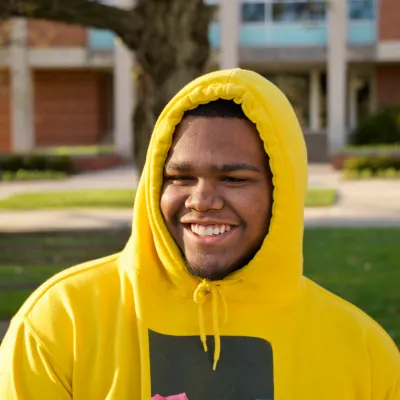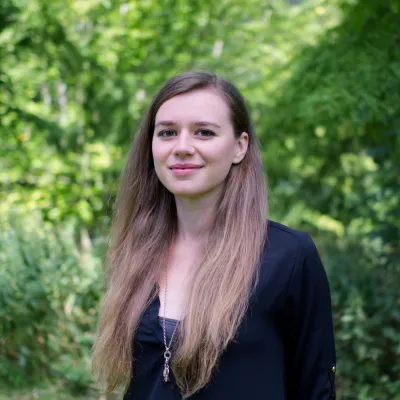Today is World Mental Health Day and, coincidentally, World Homelessness Day. And while mental health and homelessness are certainly not mutually exclusive, it’s often the case that poor mental health can feed into homelessness and vice versa.
With this in mind, we thought there was no better time to speak to our Senior Psychotherapist, Stephen Geale, who works as part of London’s Health & Wellbeing team, about what it’s like to work for Centrepoint and why mental health services are such an important part of what we offer.
Interview
Could you tell us a bit about what your job entails?
There are various aspects to my job, but in the context of your question, I’m a psychotherapist, working clinically with young people and delivering one-to-one psychotherapy sessions those who have requested it.
What we offer is a confidential space for young people to come and talk about anything they want; there’s no agenda, nothing they have to do. The idea is that the young people can decide what to tell me and what not to tell me and that can be a really valuable experience for them. Often they think there’s something they're supposed to do and that can be hard to work with, but that might have been their experience working with other professionals: they may be used to being bounced around from professional to professional and may wind up having to tell their story several times. We try to avoid that – we don’t want them simply to go over a story they've had to tell many times.
I also manage the service planning and strategy of the Psychological Therapies team, which is currently made up of five Centrepoint psychotherapists. We all deliver talking therapy although we are lucky enough to have an art therapist who does work using art materials, but her theoretical underpinning is the same as mine: psychodynamic.
What does this therapeutic process look like for a young person?
The sessions are once a week and they get up to 24 sessions – this typically takes around 10 months if everything goes smoothly. This is far more than anything young people would typically get in statutory or community services. We have great flexibility with those who want to come regularly – in fact, coming regularly can actually be therapeutic. If they’re able to communicate that they can’t come to a session for whatever reason, it shows they're actively engaging in an adult relationship. It’s taking responsibility, and that in itself is a success. When you think about Centrepoint’s mantra, “a job and a home”, you’re not going to keep either if you are unable to fulfil your side of communication. It might seem small, but that’s a really important element of how we engage with our young people.
What kind of change are you hoping to see?
Essentially, you’re not going to be able to ‘solve’ someone’s past and trauma within 24 sessions. What we’re trying to do is help them to develop some practical capacity, like learning to manage their side of a relationship. Alongside that, we also begin to give them a sense that what happened to them in the past can be thought about and that can help them to think about why they have problematic relationships in the present. Also, this hopefully gives them a positive experience of psychotherapy, so in future they ask for more help.
What does a typical day look like for you?
Let’s get the cliché out of the way now: no two days look the same! But typically I’ll arrive at the venue I need to be at and check in with the housing staff or key workers in case they’ve heard anything from or about my clients. Then I’ll be ready for my first session. So if everything goes according to plan, I’ll be in the consulting room for most of the day.
Sometimes clients will make a disclosure that requires a safeguarding response and something needs to be done then and there. In terms of confidentiality, if a young person tells me something that leaves me with a serious concern that they or someone else is at risk, that’s a case where confidentiality will need to be broken. We always try and involve the young person, and let them know we need to take it further. They are always made aware that this is the case before the first session, in the ‘assessment’ stage.
What made you want to work with young people in particular?
I wanted to try and help people whose circumstances so far have been much less fortunate than others. It’s a chance to help people gain a sense of control and choice in their life. To be able to manage relationships, and understand how one’s psychological legacy can impact negatively the relationships you have now and the choices you make now.
Could you describe the link between mental health and homelessness?
Regardless of what one’s mental health was before, becoming homeless is a traumatic experience in itself. Dealing with homelessness is going to have a huge impact on your sense of wellbeing.
Young people are living with us because at some point there’s been a catastrophic enough failure in their home of origin that they needed to leave. They aren’t coming from a place where they believe they are valuable. We want people to be pleased and satisfied with themselves, to feel worthwhile and deserving of their place at any table.
Many residents tend to stay in their rooms, because if you’re never around people, you’re never exposing yourself to the danger of rejection. And if that’s your background, you’re going to pick up on rejection really easily, so we encourage them to branch out so they don’t miss out on potentially positive relationships.
The circumstances our residents are coming from means they find it very hard to ask for and take help. Anger is a common response because it masks other emotions, like vulnerability or feeling powerless. So it’s about getting them to a point where they can recognise their feelings of anger are a defence mechanism against, for example, feeling vulnerable. If they can begin to see that whoever they’re talking to as just another person and not relate to them from a place rooted in their past (their feelings about parents who didn’t do a good enough job, for example) then their engagements with others are likely to more productive.
In a practical way, we try to get young people to a point where they feel more able to manage everyday scenarios. We want to encourage them to develop and understand and perceive themselves as being competent in all kinds of situations.
If we don’t address the psychological development of our young people, offering them the chance to gain an understanding of their own behaviour, they are going to struggle to find and hold on to both a job and a home.
What other issues are centrepoint’s young people dealing with?
Typical elements of our residents’ histories are physical and emotional neglect, physical abuse, sexual violation, educational neglect and disruption, constantly changing domestic circumstances as parents separate and make new relationships, being rejected for their actual or perceived gender identity and/or sexual orientation, racism including shadeism (intra-group discrimination on the basis of skin tone). And there are ever more asylum seekers and refugees in our services. They are fleeing from danger in their countries of origin and their journeys to the UK will have been traumatic; they are likely to have suffered and witnessed horrific events.
Sometimes in these cases, a response of anger is entirely appropriate, but we try to give young people a chance to think about how they express their anger and to respond in a way that’s going to be more productive and less damaging.
We want people to gain an awareness of their subconscious and to think about what’s making them react the way they are and to identify their triggers, rather than getting caught up in their emotions and acting out destructively. We want them to be in a position to make more conscious choices about, for example, their identity and how they engage with others around their identity.
Why is mental health support so vital within our services?
If we don’t manage to work with young people in this way, then whatever’s wrong will be left to fester. A lot of the work we do is unpicking the defences and responses young people have. If there’s something that affects their mental health and they don’t have an outlet for it, they develop coping strategies, and the longer they don’t have an appropriate forum to work on it, the more embedded and habitual these strategies become.
For the young people that we support, it’s very likely that they are going to have problems stemming from far back in their histories, and they haven’t been given the environment to address them. Which is why our offer is so valuable – it’s in-house and 24 sessions, and people can be referred again, which is really important. We are working hard to make sure people take it up.





